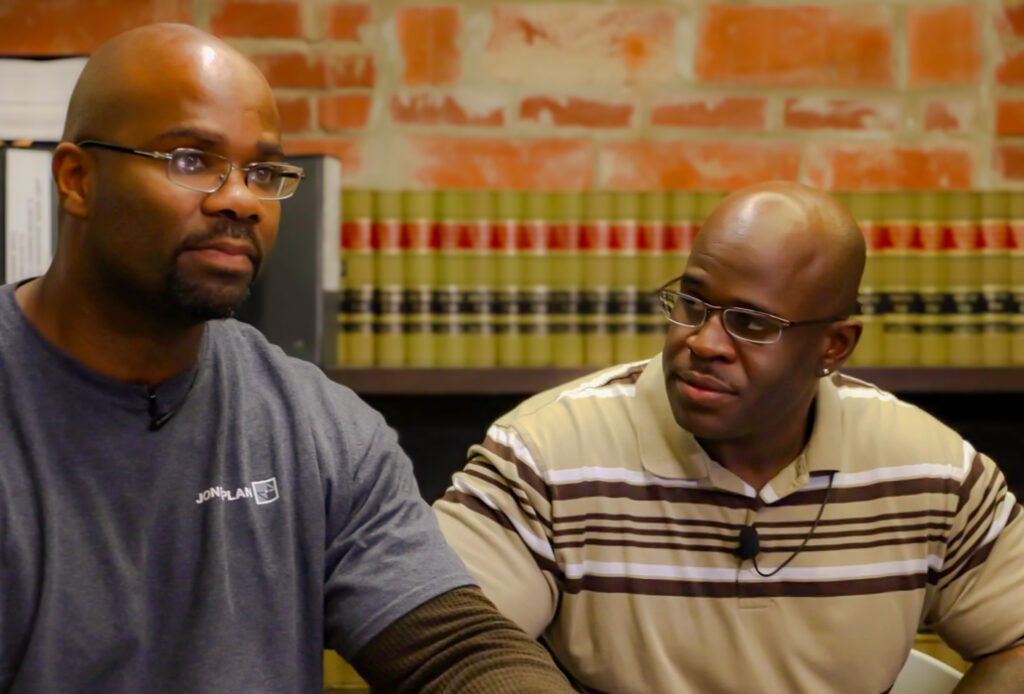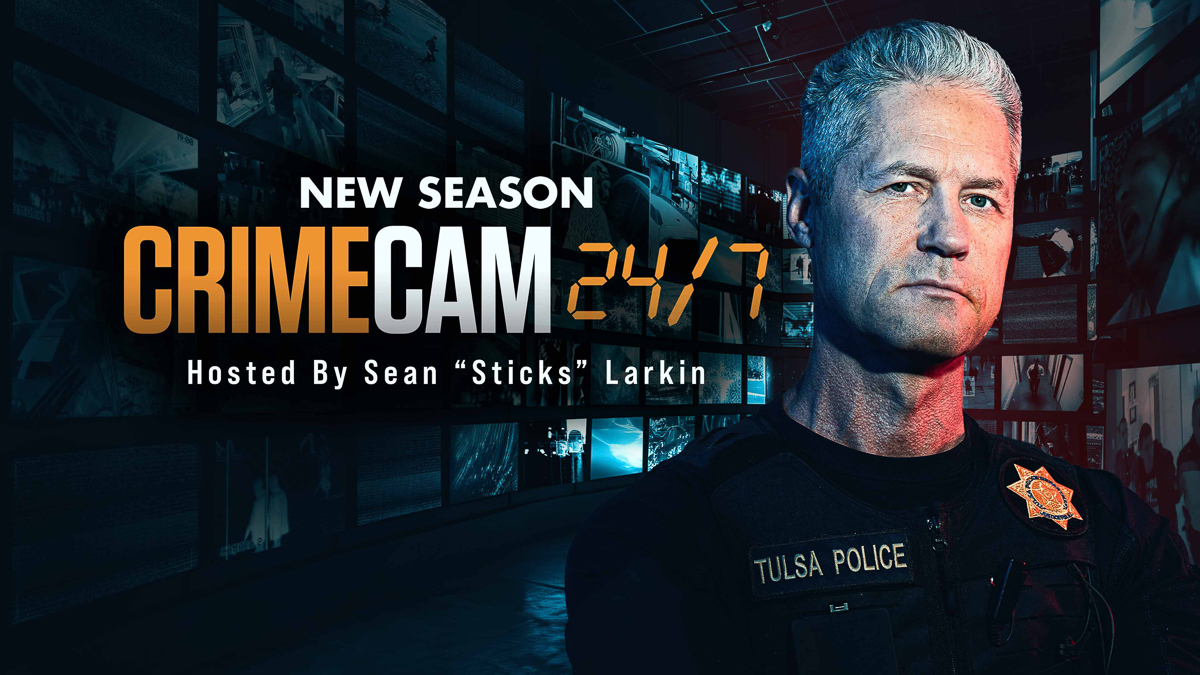Demarchoe Carpenter, left, and co-defendant Malcolm Scott talk to the media about being declared innocent of a 1994 murder. Image by Dylan Goforth/The Frontier
By G.W. Schulz
During a recorded conversation on Aug. 12, 2019, Lt. Sean “Sticks” Larkin of the Tulsa Police Department made an extraordinary statement.
In the recording, Larkin suggested that Norwood.Law client Demarchoe Carpenter had somehow outsmarted authorities three years before. That’s when a Tulsa judge found that Carpenter had been wrongfully convicted of a 1994 murder. He was set free after 22 years in prison.
“But we’re gonna put him away on this one, okay?” Lt. Larkin said on the tape.
Larkin told this to a man named Sheldon Reed who was recovering at St. John’s Hospital after being shot five times on Aug. 6, 2019, in Tulsa. The promise to Reed made it appear that Lt. Larkin and the Tulsa police were planning extrajudicial frontier justice where the courts had exonerated Demarchoe Carpenter.
Two days after the hospital interview, authorities issued a warrant for Demarchoe Carpenter’s arrest in the shooting of Sheldon Reed. It was happening all over again.
Later in court, Lt. Larkin would say he was simply trying to reassure the victim that police were on the case. But at that moment, Larkin had not interviewed any other witnesses before determining that Carpenter was the perpetrator based on Reed’s claims. Larkin admitted this under oath.
Lt. Larkin isn’t just a now-retired Tulsa cop. At the time of the Sheldon Reed shooting, Larkin’s extracurricular career as a media darling was exploding. Tall and noticeably handsome, Larkin in recent years has become a social-media star, a podcast host, a book author, and the co-host of popular police-reality shows including the smash-hit “Live PD.”
Meanwhile, in both the 1994 and the 2019 cases against Demarchoe Carpenter, there was no physical evidence ever presented by the government.
What would a jury say this time?
Keep reading below for the whole story.
Need help with a legal dispute? It’s not just criminal defense we practice. If you find yourself tied up in a personal injury, business, or family conflict, Norwood.Law will bring the same commitment and skill to your corner that we did to the achingly true story of Demarchoe Carpenter.
Visit Norwood.Law or call 918-582-6464 for a consultation.
‘No man at all’
Demarchoe Carpenter had every right to worry about the Tulsa Police Department.
Along with co-defendant Malcolm Scott, Carpenter had already spent 22 years in prison for murder before being found innocent and released. A Tulsa judge firmly declared in May of 2016 that the two men had not committed a 1994 drive-by killing on East 29th Street North.
Three years after their release from prison drew national headlines, it seemed to be happening once more for Demarchoe Carpenter. But who actually shot Sheldon Reed in 2019 was unclear from the start.
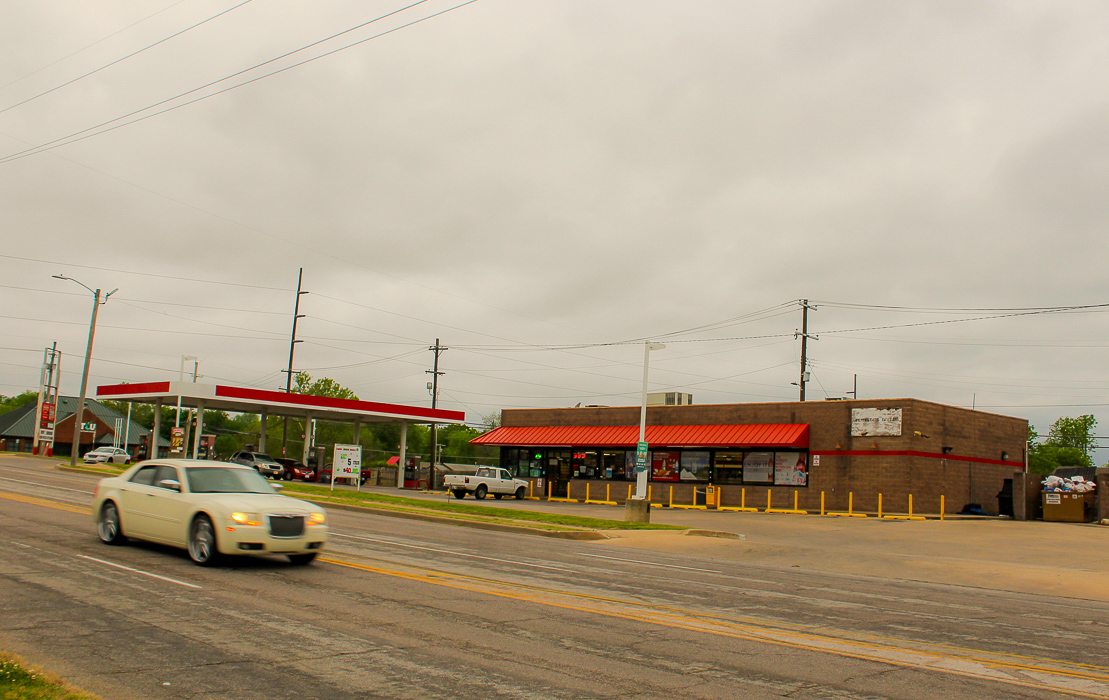
Reed would testify in court that the man who shot him was Demarchoe Carpenter.
But Reed also said under oath that there were no disputes between the two men.
When Reed had called 911, he couldn’t say who shot him.
Reed also posted a message on Facebook after the shooting:
“I’m not worried about pointing my finger at no man at all.”
Then Reed took it down.
Reed and Demarchoe Carpenter saw each other with no conflict two to three times a week in their neighborhoods prior to the shooting. The two men had known each other since Reed was young.
Prosecutors would later claim in court that behind the shooting was a love triangle involving Sheldon Reed, DeMarchoe Carpenter, and the woman Carpenter married when he was released from prison in 2016, Brandy Guest.
Carpenter was charged with a felony in the new case on Aug. 14, 2019, just two days after Lt. Larkin had vowed to get him for the shooting of Sheldon Reed. Norwood.Law represented Carpenter in the case.
At Carpenter’s preliminary hearing the following month, only one witness was sworn. Such hearings are designed to ensure prosecutors have sufficient evidence to take a case to trial.
The sole witness at the preliminary hearing was Sheldon Reed. Demarchoe Carpenter was sent to trial.
A driveby shooting
Demarchoe Carpenter had already fought a war for his life inside America’s unrelenting criminal-justice system before Tulsa police appeared with the shooting case.
In the late summer of 1994, a driveby shooting took place outside of a party on East 29th Street North in Tulsa. A 19-year-old teen girl was killed. Two others were injured.
The two survivors told police they could not see the occupants of the car. It was dark, the car was moving, and there was gunfire. After being interviewed by police, however, they were suddenly pointing to Demarchoe Carpenter and co-defendant Malcolm Scott as the perpetrators.
But police traced the gun and car used in the driveby to the home of someone else – a man named Michael Wilson. He told authorities that he had not loaned the car or gun to anyone else.
To save himself, however, Wilson made a deal with law enforcers. He was given a greatly reduced sentence in exchange for aiding the government in the case. Although Wilson was the real killer, Malcolm Scott and Demarchoe Carpenter became the focal point of prosecutors.
Two decades later in early 2014, Michael Wilson had a dramatically different story to tell. Wilson admitted on tape that he was the actual perpetrator of the driveby shooting. Further, Wilson said he was stunned that police hadn’t considered him the lead suspect when they found him with the gun and car shortly after the driveby in 1994.
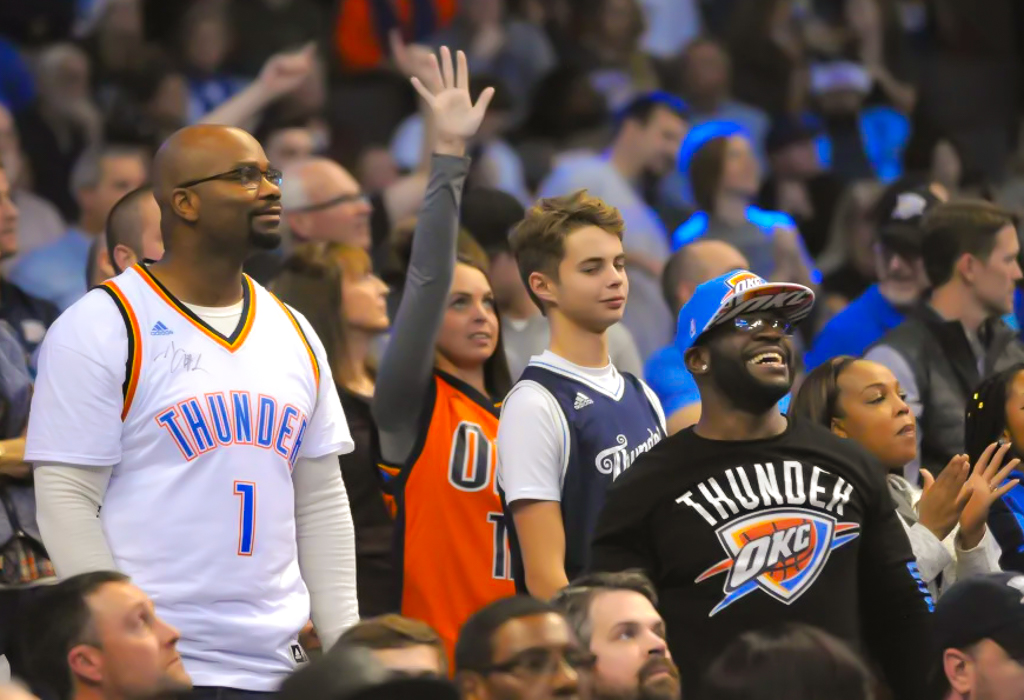
“They just let me go. … I had the murder weapon on me, and they let me go.”
Two people in the car that night with him corroborated Wilson’s confession. He told the true story to the Oklahoma Innocence Project.
The two witnesses who were injured during the driveby had different stories to tell, too. They recanted their claims that Carpenter and Scott were the shooters and said they were pressured and coerced by law enforcement to name the two men.
Brother’s keeper
Somehow, there’s more to the story.
Norwood.Law also represented Corey Atchison. He is the brother of our client Malcolm Scott, who along with Demarchoe Carpenter we are representing in a federal lawsuit over their wrongful convictions.
Astonishingly, Corey Atchison, too, was wrongfully convicted in an entirely separate case.
In 1990, a man was shot to death in the Kendall-Whittier area of Tulsa. When Atchison and a group of friends stumbled on to the scene, Atchison called out for help. The Tulsa Police Department called him the murderer.
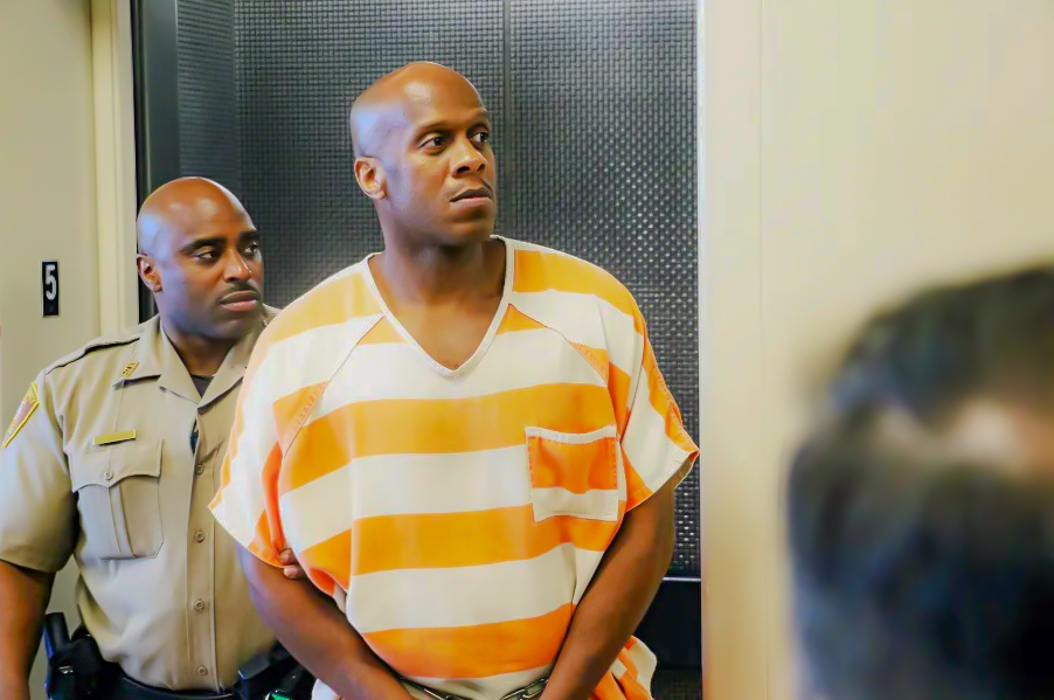
Atchison spent 28 years in Oklahoma’s prison system for the shooting before he was declared innocent by a Tulsa judge and let go on July 16, 2019.
Like in the Scott and Carpenter case, three supposed witnesses in the Atchison case eventually recanted their accusations. Two did so on the witness stand. All said they were coerced by Tulsa law enforcement.
At the outset of the investigation, another witness had given the name of an alternate suspect to police – a lifetime criminal. Two more witnesses gave suspect descriptions that did not match Corey Atchison but did match the alternate suspect.
The name of the alternate suspect was hidden from Atchison for years.
Tulsa police and the Tulsa County District Attorney’s Office sent Corey Atchison, Malcolm Scott, and Demarchoe Carpenter to prison for nothing.
And it still wasn’t enough. In 2021, they put Demarchoe Carpenter on trial once more.
‘Like a big brother’
Police and prosecutors point to a protective order as evidence that Demarchoe Carpenter had motive to shoot and nearly kill Sheldon Reed. Carpenter’s attorneys countered that he was still in prison at the time fighting his wrongful conviction. There’s no evidence he knew about the protective order.
While in prison on that wrongful conviction, Carpenter formed a relationship with a woman named Brandy Guest. They were married after he was declared innocent and released in 2016.
Prior to this happening, Brandy Guest had dated Sheldon Reed. The relationship dissipated, however, and Guest eventually filed a protective order against Reed in June of 2014. She alleged that Reed had harassed, stalked, and beat her. She also said Sheldon threatened to kill her, stole her car, and broke into her home.
Prosecutors would argue this was evidence of motive. They would say Demarchoe Carpenter was jealous of Sheldon Reed for having dated Brandy Guest.
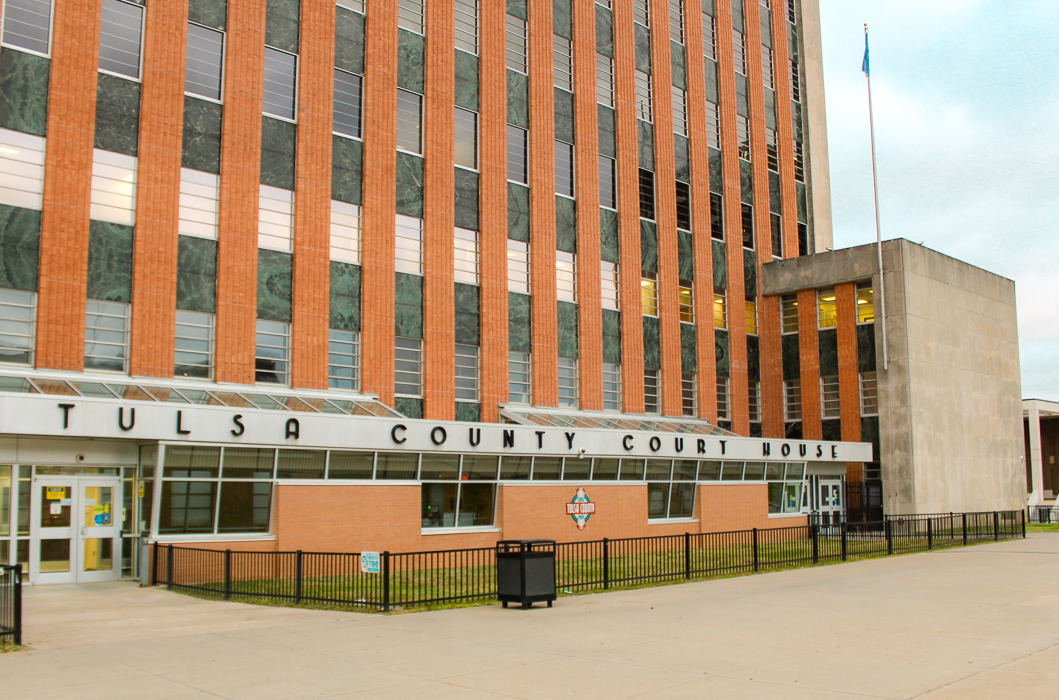
The trouble with this theory is what Sheldon Reed himself testified to in court. After Carpenter was released, Reed and Carpenter would often see each other in the area of Tulsa where they lived. Reed testified at the Sept. 10, 2019, preliminary hearing that he and Carpenter had no beef with each other:
Q: “There was no argument or animosity between you and Demarchoe?”
A: “No. Never.”
Growing up, Reed said, Demarchoe Carpenter was “like a big brother to me.” He recalled when Carpenter was sent to prison on the wrongful conviction in 1995.
Unindicted
Sean Larkin has a record of his own. In 2011, federal prosecutors tied him to a corruption probe of the Tulsa Police Department and named him as an unindicted co-conspirator. This fact appeared in a 62-count indictment of two other Tulsa police officers. Larkin was not placed on administrative duty as a result of being given this designation by federal law enforcement.
But it would lead to Larkin being prohibited from testifying against defendants in federal court. This is also known as becoming “Giglio-impaired,” which refers to a 1972 ruling by the U.S. Supreme Court.
In the Tulsa police probe, federal prosecutors accused the defendants of stealing money during an FBI sting and planting small amounts of drugs on suspects. Reportedly more than three-dozen people were set free from prison or had their felony cases modified or dismissed in the wake of the misconduct investigation.
One defendant alleged that Larkin and a colleague would stop and question people about guns and drugs and “threaten and intimidate them if they didn’t cooperate,” according to the Tulsa World.
The colleague, former Tulsa Police Officer Jeff Henderson, was ultimately sentenced to three-and-a-half years in prison. After the indictments, there were lawsuits, too. Larkin, to be sure, was never indicted but was named in court records as a co-conspirator.
According to our suit: “As a result of the FBI’s investigation, Lt. Larkin has been barred from testifying in federal court, because the United States Attorney’s Office refuses to sponsor his testimony.”
Lost opportunities
Several days after the Sheldon Reed shooting, Lt. Larkin had become the lead investigator in the case. According to reports Larkin filed, Reed called Larkin on Aug. 11 and said he had a story to share. Hospital records show Reed had PCP in his system at the time and was hallucinating throughout the day. It was the first day Reed claimed Demarchoe Carpenter shot him.
From the Norwood.Law civil lawsuit: “Mr. Reed’s story was neither coherent nor logical, and any objective investigator would have known that.”
A cousin of Demarchoe’s, Thomas Carpenter, would further contest the police version of events by saying he witnessed the Sheldon Reed shooting. Demarchoe was not the shooter, Thomas said. Another witness said Sheldon Reed told him that he didn’t know who shot him.
Also, Sheldon Reed had his own record of felony convictions for burglary and eluding a police officer. He’d had protective orders filed against him twice in the past. They alleged that Reed harassed, stalked, and threatened two accusers.
To be sure, we have since voluntarily dismissed Larkin from the lawsuit. Our suit nonetheless stated that Lt. Larkin during his investigation avoided opportunities to collect additional evidence. It stated that Larkin – prior to Carpenter being charged – made no attempt to interview people who had actually seen the shooting.
“Lt. Larkin was aware of these witnesses and chose not to interview them, because he already had the person he wanted, Demarchoe Carpenter.”
At Carpenter’s eventual trial, several people were scheduled to testify to a lack of trust in the Tulsa Police Department.
Who to blame
While the investigation was underway, a witness emerged. Sheldon Reed had allegedly told this witness that Reed didn’t know who shot him. Reed also said, according to the witness, that the Tulsa Police Department was forcing Reed to wrongly blame Carpenter for shooting him.
The witness signed an affidavit swearing to these claims.
This witness was later scheduled to testify at Carpenter’s shooting trial. But 10 days before that could happen, the witness was arrested by the Tulsa Police Department’s Crime Gun Unit. Its supervisor and lieutenant at the time was Sean Larkin. The witness then refused to testify saying he feared retaliation from the Tulsa police.
When the trial did get underway, Lt. Larkin testified that he had not previously known Sheldon Reed. His memory had to be refreshed under oath. In reality, Larkin was the officer who arrested Reed in 2005 for felony eluding police.
By the conclusion of the trial, Demarchoe Carpenter was acquitted of the charges against him despite the star power and confidence of Sean Larkin.
The jury wasn’t willing to send Carpenter to prison yet again just because the government wanted it. After another long ordeal, prosecutors couldn’t prove Demarchoe Carpenter was guilty of a crime.
Just days after the jury’s verdict, Lt. Sean “Sticks” Larkin confirmed to the Tulsa World that he was retiring from the Tulsa Police Department:
“I have other things going on – other opportunities.”
